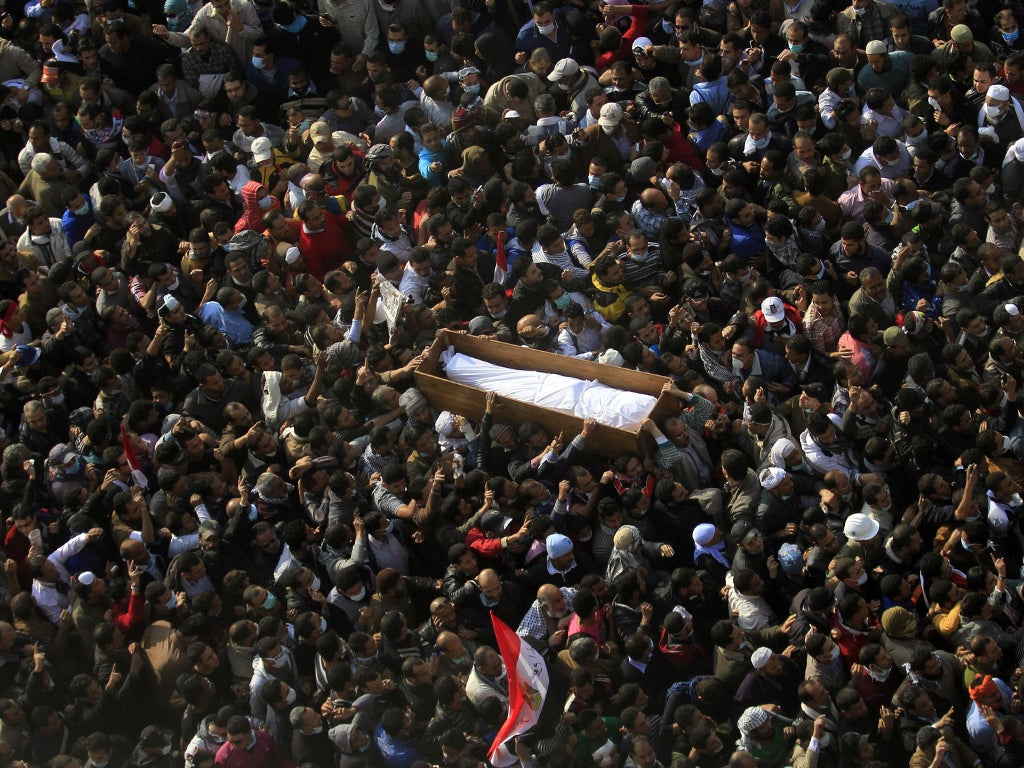Robert Fisk: Egyptian crisis gives Syria time to talk about democracy
This is great news for President Assad


Your support helps us to tell the story
From reproductive rights to climate change to Big Tech, The Independent is on the ground when the story is developing. Whether it's investigating the financials of Elon Musk's pro-Trump PAC or producing our latest documentary, 'The A Word', which shines a light on the American women fighting for reproductive rights, we know how important it is to parse out the facts from the messaging.
At such a critical moment in US history, we need reporters on the ground. Your donation allows us to keep sending journalists to speak to both sides of the story.
The Independent is trusted by Americans across the entire political spectrum. And unlike many other quality news outlets, we choose not to lock Americans out of our reporting and analysis with paywalls. We believe quality journalism should be available to everyone, paid for by those who can afford it.
Your support makes all the difference.Egypt is the best thing to happen to Syria for a long time. Just when Western leaders – and Qatar – were hounding President Bashar al-Assad for his brutal suppression of opposition demonstrations, along comes the latest crisis in Egyptian cities where security men brutally suppress opposition demonstrators who want the army to obey the orders of a real democratic parliament and to stop posing as the "guardians" of a new constitution.
Of course, Syria is not Egypt, which, I suppose, accounts for the mouse-like silence of the Obamas, Clintons, Camerons, Sarkozys and the Emir of Qatar over events in Cairo.
This gives yet more time for Damascus to talk about democracy, reform, pluralistic politics and a new constitution while its army fights the armed insurgency that has spread from Homs – a city that is now the centre of a vicious sectarian war. Is it still possible, conceivably, that President Assad will use this tiny bottle of oxygen from Egypt to prove that he really – really – means what he says about democracy, pluralism, etc?
Dr Faisal Mokdad, Assad's Deputy Foreign Minister, is a believer. "Syria is changing and the old Syria will never come back," he told me in the new Battlestar Galactica-style foreign ministry. "It will be a country free for the press. The ballot box will decide." The Anglo-American invasion of Iraq set back early plans for reform, Dr Mokdad insists. I have my doubts about this, but take note of the minister's conviction that Obama made the right decision in withdrawing from Iraq.
"Today, I heard that the number of young American soldiers killed in Iraq – quite apart from the huge civilian casualties – was 4,600. This is a question the American people should ask themselves. Saddam Hussein has gone – but was it worth $400bn? In Libya, I'm told the cost was 30,000 dead." Needless to say, I had to turn to the little matter of civilian casualties in Syria and the UN's claim that 3,500 had died. Was it worth it?
Dr Mokdad is the right man to ask, for he was the official chosen by President Assad to face the bereaved families of Deraa when two teenagers died under torture by state security police after writing anti-Assad graffiti on the walls of the city last February.
"There were peaceful demonstrations in Deraa," Dr Mokdad says. "What happened should never have happened. I was sent to Deraa to give condolences for the dead. I faced angry people. I told them the President did not want this to happen, that the President had nothing to do with it. I gave them the President's condolences and they said they knew mistakes were made, that the President had nothing to do with this. He fired the governor and he established an independent judicial committee to investigate. What I do know is that armed groups are killing demonstrators."
But demonstrators killed by "armed groups" is not what the YouTube pictures from Homs suggest; today, however, these "armed groups" are certainly killing Assad's soldiers in very large numbers; opposition groups deny they are behind the insurgency, though they express enough frustration to make anyone suspect they are.
Dr Mokdad believes foreign journalists should be in Syria, but tells me he does not want me to risk my life in Homs and that "the British Government will blame us if you are killed".
Cameron: War looms in Syria
David Cameron urged world leaders to "engage" with Syrian opposition groups yesterday as he warned the country was on the brink of a full-scale civil war.
The Prime Minister praised interventions by Turkey and the Arab League against Bashar al-Assad's brutal suppression of protests. Speaking alongside Turkish President Abdullah Gul in Downing Street, he said: "Today we had important discussions on Syria, where now a full-scale civil war is a real possibility.
"The world now needs to get behind with concerted pressure on the regime and positive engagement with the opposition, who can represent Syria in an inclusive transition," he added.
"Syria is now at a dead end so change is inevitable," Mr Gul had earlier said.
James Tapsfield
Join our commenting forum
Join thought-provoking conversations, follow other Independent readers and see their replies
Comments